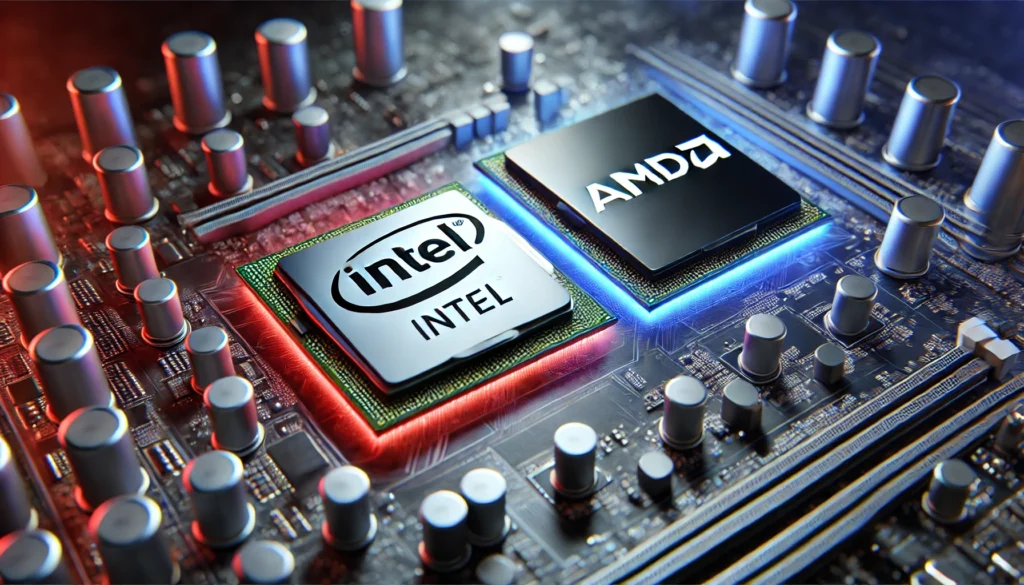When building or upgrading a computer, one of the most important decisions is choosing a processor (CPU). The two leading brands in the market are Intel and AMD, and each offers unique advantages depending on your needs. This guide will help you decide which one is best for your use case.

Understanding Intel and AMD
Before diving into performance and features, let’s take a quick look at both companies:
- Intel: A well-established brand known for its reliable CPUs, strong single-core performance, and power efficiency.
- AMD: Offers competitive multi-core processors, excellent performance in multitasking, and great value for money.
Both brands produce CPUs for different needs, from budget-friendly models to high-end gaming and workstation processors.
Performance Comparison
The best way to compare Intel and AMD is by looking at performance in different categories:
1. Gaming Performance
- Intel generally offers better single-core performance, which is crucial for gaming. Many games still rely heavily on single-threaded performance, making Intel CPUs a strong choice for gamers.
- AMD, however, has closed the gap with its Ryzen series. The latest Ryzen 7000 series offers high clock speeds and efficiency, making it competitive with Intel.
Verdict: If gaming is your main priority, Intel is usually the safer choice, but AMD is now a strong competitor.
2. Multitasking and Productivity
- AMD shines in multitasking due to its high core and thread counts. If you are a content creator, video editor, or 3D designer, an AMD Ryzen processor may be a better option.
- Intel has improved its multi-core performance with the latest generations, but AMD still leads in high-end multitasking.
Verdict: For video editing, rendering, and professional workloads, AMD is generally better.
3. Power Efficiency and Heat Management
- Intel’s latest processors are more power-efficient than previous generations, but they still tend to run hotter under heavy loads.
- AMD, especially with its Ryzen chips, often has better power efficiency, meaning lower electricity bills and less heat generation.
Verdict: AMD is usually better in power efficiency, but Intel has improved significantly.
4. Price and Value
- AMD processors usually offer better price-to-performance ratios. You often get more cores and threads for the same price compared to Intel.
- Intel processors, while sometimes more expensive, often provide excellent raw performance, especially in gaming.
Verdict: AMD offers better value for budget and mid-range builds, while Intel can be worth the extra cost for top-tier gaming PCs.
Choosing the Right CPU for Your Needs
To help you decide, here are some general recommendations:
- For Gaming: Intel Core i5/i7 (13th or 14th Gen) or AMD Ryzen 5/7 (7000 Series).
- For Content Creation: AMD Ryzen 9 or Intel Core i9 for best performance in editing and rendering.
- For Budget Builds: AMD Ryzen 5 or Intel Core i5, as they offer excellent performance without breaking the bank.
- For Power Efficiency: AMD Ryzen CPUs tend to be better, especially for laptops.
Final Thoughts
Both Intel and AMD make excellent processors, and the best choice depends on your needs. If you prioritize gaming, Intel is often the better choice due to its strong single-core performance. If you need multitasking power for productivity, AMD offers better value and higher core counts.
Before making a final decision, consider your budget, intended use, and whether you prioritize performance, efficiency, or value. Either way, both brands offer powerful options that will serve you well!